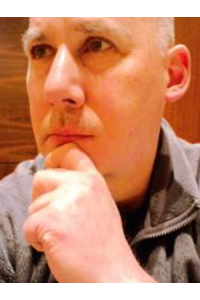Carson High School, Portland, Oregon
Homeroom class, June first
Seven days before summer vacation.
“Class, close your books. I’m about to give you your final grades for the year.”
So said our homeroom teacher, Mr. Osborne, in that semi-aristocratic, snobbish voice that only the truly annoying possessed. Osborne was a short, bald man, well over fifty, with a testy, impatient manner and a caustic way of phrasing things.
Nine-oh-two a.m. and my heart was already beating fast. I’d been sweating out my test results for the past week. Today would either be a ‘yay’ or a ‘nay’.
I could only hope for a ‘yay’, although a person could never tell what Osborne would do or say. In his mind, if a student wasn’t worthy, he said so.
In front of the class.
In a loud voice.
Yes, he was a jerk.
However, today, Osborne must have been feeling generous, as he simply called up the students one by one, spoke to them quietly and gave them the results in a printout.
It was easy to pick out who passed and who failed. Those who passed had that secret smile working, something that imparted a repressed feeling of elation and an unspoken shout of joy, as in, “No summer school. I’m outta here!”
On the other hand, those who failed—below a collective score of seventy-six—had a stone-face thing going on. At least, most of them did. Some of the unfortunates broke down in tears and were comforted by their friends. A couple of them ran out of the class, crying uncontrollably.
“Mr. Catton.”
Osborne called Joel Catton up, the self-described resident brain. He was a genius at everything—or so he said.
In contrast, I was a genius at nothing, although my grades were decent enough. The only reason for that was because I pored over my homework night after night until the concepts and facts and figures were firmly etched in my mind.
For me, it was a matter of pride. I was a washout at sports, save swimming, noted for being sort of introverted, but I never gave up on anything. Through sheer determination, I passed my tests and did well.
In contrast, my best bud, Nick Walker, was one of the true geniuses, even smarter than Joel. It was a given that Nick didn’t have to worry about summer school—ever.
At barely five-four, he weighed two hundred pounds, a perfectly round Humpty-Dumpty lookalike, with button eyes, a moon face and pudgy hands with fingers like sausages.
He sat behind me, murmuring, “Mark, you got this,” over and over, and that took away some of the nervousness.
Of course, Nick had to mutter that his grades would be the highest in the class, higher than Catton’s. They’d had a scholastic rivalry going on for the past year.
Catton walked back to his seat, which was behind Nick’s. Joel’s smile was on full display, and he slumped down with a happy sigh. I overheard him whisper to Nick, “Hey, ninety-four percent in the regular courses.”
“What about gym?” I asked in a low voice and turned around to catch Joel’s expression. He couldn’t even do five pushups without passing out.
His face turned red. “Phys ed doesn’t count. Ninety-four percent. Beat that, Walker. And I know you’re nowhere near me, Cornish.”
Catton and our teacher were equal opportunity asshats. Joel never had a decent word for anyone. Tall and skinny, with spotty skin, halitosis and the attitude of a smarmy geek, he lived to make fun of those with lesser grades than his.
Beating him up wasn’t an option, as he had no fighting skills. Moreover, his uncle was the principal. Smacking Joel around was guaranteed to earn anyone who did so a suspension.
Secretly, I had the feeling that one day, someone would level his loser ass but good…
“Failure’s around the corner, Cornish,” he whispered, breaking into my reverie. Maliciousness coated every word. “Summer school is waiting.”
Toolbit. I ignored his noise. Seventy-six was the cutoff. That number meant everything.
“Mr. Cornish.”
Okay, the teacher had called my name. “Go get ’em,” Nick murmured and gave me the thumbs-up sign.
He could afford to be calm. My heart was going a million miles an hour. I whispered, “Yeah, right.”
At Osborne’s desk, I got the printout—eighty-four. “Well done, Mr. Cornish,” he said in a quiet, even voice. “Consider this a window of opportunity to better yourself. You may get into a university, after all.”
Some compliment—not. While my grades were decent, my mother didn’t have the cash, so forget about getting a scholarship. However, a person had to show gratitude, so I bobbed my head and said, “Thank you, sir.”
A quick U-turn took me back to my seat. Once there, I returned the thumbs-up sign to Nick. Joel glowered. His day was ruined. Perhaps today wouldn’t be so bad after all…
The door opened, and one of the students came in. ‘Late’ wasn’t the right word to use in Glenda’s case. ‘Rare appearance’ best described her.
As always, she wore a green hoodie and a pair of torn blue jeans, along with a pink T-shirt with a picture of a unicorn on it. Ragged black sneakers completed her outfit, and her outfit could only be described as a cross between ‘grungy’ and ‘funky’.
Two months ago, she’d transferred in from a school back East, and since then, she’d established a reputation as someone who A, didn’t like conversation, B, knew more than anyone else, even Nick and C, knew way more than Joel.
Glenda was my height—five-ten—and gangly, with pixie-like features, reddish-gray hair, jade-green eyes, and the ability to turn heads wherever she went due to her appearance.
All the female students thought her stuck up and strange. All the male students simply thought her totally undatable.
I thought she was cool, in her own way. On her first day here, she’d introduced herself in a monosyllabic voice, then she’d found an empty seat next to mine. “I’m Mark Cornish,” I whispered. “Nice to meet you.”
Glenda gave me the onceover and asked in a neutral tone, “Do you have any of the textbooks?”
I had all of them and showed her. She flipped through them at lightning speed, then she handed them back. “Thank you. I can apply this knowledge.”
Uh-huh. And I’d thought that Joel and Nick were brilliant—not. Whenever Glenda came to class—usually two days in a row then she didn’t come for two—she knew the answers perfectly. And she always showed up on test day to blast through the questions and essay sections.
It went without saying that she got stellar results—perfect scores…every time. If I hadn’t been so fascinated with her, I might have hated her. But I couldn’t. Some people were just incredibly bright. She was one of those people.
Glenda walked quickly over to the empty seat beside me, sat down and whispered, “What letter are they up to?”
“They just called my name. You’re next, I think.”
Glenda’s last name was Cron—C-R-O-N. That was how she spelled it, and woe unto anyone who mispronounced it. One guy called her crone—once. She leveled him with a left hook.
No one ever dared mess up her name again.
“Ms. Cron,” the teacher intoned. “So nice of you to attend.”
No reaction came from her, not so much as a twitch. However, she did apologize. “Sorry for being late. I’ll come on time next time.”
Osborne consulted his ledger. He used a computer for official stuff, but he liked to keep an old-fashioned notebook to record attendance.
“Considering summer vacation will commence in a few days, Ms. Cron, I doubt there will be a next time until September. You’ve attended only fifty-two percent of the classes since you transferred here.”
“Er, well, at least I didn’t attend forty-two percent. The internet says forty-two is the magic number, doesn’t it?”
Oh, burn! That got the class laughing. Osborne’s face turned red, and he growled, “Come up and get your grades.”
In an unexpected and rare display of friendliness, Glenda winked at me and went up to the teacher’s desk, her hands clasped in front of her body, head bowed to indicate humility.
Osborne’s voice drifted over. “Ms. Cron, despite your attitude and your rotten attendance record, as always, you never fail to surprise me. Your grades are perfect.”
Murmurs ran around the class, like ripples through a pond after someone had tossed a stone in it. Perfect? Impossible.
But it was true. She returned to her desk, holding her printout, and she showed it to me. One hundred percent in every subject, except Phys ed. I had no words.
“Guess no summer school for you,” I whispered.
“I have places to go,” she answered somewhat smugly.
What places? Whatever. Glenda had never been the talkative sort. Our lockers were on the first floor, hers being five over from mine, but she rarely went there. She never ate lunch in the cafeteria and spent most of her time in the library, which was on the third floor.
In short, she was a loner, and the other students considered her too weird to hang out with. On the flipside though, Glenda didn’t seem to care.
After our class finished, I went to my locker, and she cornered me there to ask me about Portland. “Why?”
Her answer was simple. “Oh, I’m interested in new cities, places to go, to live…that kind of thing.”
Since I’d grown up here, I told her what I knew. After I finished talking, she thanked me and asked one question. “If someone offered you a chance to go somewhere interesting, would you go?”
Call that strange…then some, but okay, humor her. “Yeah, sure, I guess.”
Glenda seemed satisfied and walked off. The window of opportunity opened and closed fast—or something like that. It simply meant that if you had a chance, you had to grab it.
Reality intruded. With no cash and no connections, my future was set—working in some office or a warehouse.
Thinking about it just got me depressed, so after school let out, I went home to an empty house, cleaned up and made myself dinner, then bored with television and with nothing interesting online to watch, I went to bed, wondering about places to go and people to see.
Before I drifted off, I thought about what my seventeen-plus years had been about and came up with only one word—empty. Being an only child with an absentee mother had never been fun. My father had died long ago. I’d been four at the time.
I barely remembered him. According to the wedding picture that sat on the bookshelf, we shared the same traits—same height, a slender build with wide shoulders and a narrow waist, dark hair, brown eyes and plain features. That was it.
It also happened to be the only picture I’d ever seen of him.
My mother—barely five feet, plump and quiet—never mentioned him. She was too busy working. As a software salesperson-slash-coder-slash-troubleshooter, she often traveled around the country, and she sometimes went to other cities or countries to attend seminars.
She’d left yesterday on another trip. “Two weeks plus,” she’d said as she packed, her hands moving quickly and deftly to lay out then fold her clothes.
“Where to this time, Mom?”
Her answer—six days in New York, five days in Toronto then four days in San Francisco to attend some seminar. “I left money for you, but you have a cash card, don’t you?”
“Yes.”
I rarely used it. I’d saved money from my summer job the past year, working in an ice cream parlor. It wasn’t much, but it was enough. I didn’t like relying on my mother for handouts.
“So, you’ll be fine.”
As usual, her voice came out quiet and even, and her expression was unreadable. I wondered at times if she’d ever cried over her husband—my father—dying.
“Yeah, I’m used to it.”
My mother’s hands stopped moving. “Meaning what?”
This time, her question came out tinged with anger. We hadn’t spoken about this for a long time. Her standard answer was that we needed the money. She didn’t care for traveling, but she went. “Meaning…what?” she repeated.
Call that spoiling for a fight. Usually, I backed down out of respect, but not that day. “Meaning you’re never around. I know the neighbors better than I know you,” I replied, not being snarky, but being honest. “What are you running from? Me?”
It wasn’t as though she had a boyfriend. She never mentioned any relationships. With her, it was work and more work.
Her face reddened, and she stammered out, “It’s not that. Just…just that we need the money. That’s all.”
I tried a different tack. “Mom, how about you stick around and find out about me.”
Now, confusion competed against embarrassment for supremacy on her face. “What?”
Oh, you know. “I mean, you’ve never met my friends, and you never ask me about my grades. Do you even care?”
The red hue on her face deepened even more. “Mark, I care, but face it. We need the money. I don’t work because I love it. I work because it brings us in what we need.”
With anyone else, her little speech would have sounded almost noble. In my mother’s case, it was simple lip service.
Since she didn’t know about my grades and couldn’t have cared less, I gave up. “Have a nice trip. See you next month.”
Yes, it was a flip answer, and no, she didn’t respond. She’d departed the next morning, and a note on the table summed it all up.
Mark,
We’ll talk when I get back. I promise.
Mom
I put it in the drawer. There were ten other notes with the identical message written on them. Each time my birthday rolled around, she always forgot. I’d quit reminding her three years ago.
I came to with a start, staring into the darkness. Glenda’s words came back to me. Go somewhere if I had the chance? Call that a yes…then some.









 Facebook
Facebook Twitter
Twitter